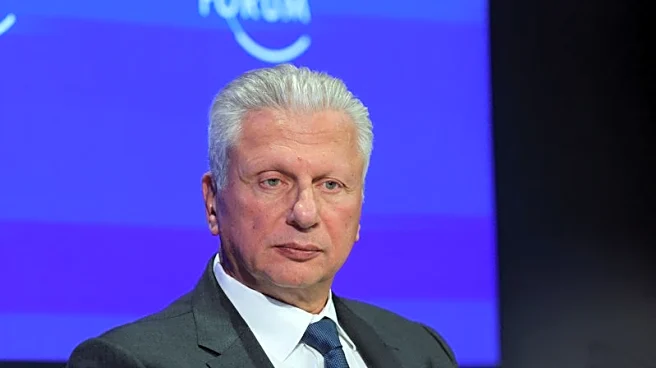What's Happening?
Defense Secretary Pete Hegseth has implemented a new policy requiring formal approval for nearly all Department of Defense communications with Congress. This directive mandates that most offices, including the Chairman of the Joint Chiefs of Staff and the commanders
of combatant commands, must coordinate their communications through the assistant secretary for legislative affairs. The Office of the Inspector General is exempt from this requirement. The policy has sparked concerns about transparency and the flow of information necessary for congressional oversight. Democratic Senator Jack Reed, a ranking member of the Armed Services Committee, criticized the move, suggesting it could hinder lawmakers' ability to conduct effective oversight. The policy follows a recent exodus of major news organizations from the Pentagon, prompted by new press requirements perceived as infringing on First Amendment rights.
Why It's Important?
The new communication policy could significantly impact the relationship between the Department of Defense and Congress, potentially limiting lawmakers' access to timely and critical information. This change may affect congressional oversight, which relies on transparent and direct communication with defense officials. The policy could also influence public perception of the Pentagon's transparency and accountability. Furthermore, the departure of major news organizations from the Pentagon underscores growing tensions between the media and the Department of Defense, raising concerns about press freedom and the public's right to information.
What's Next?
The policy's implementation may lead to increased scrutiny from Congress and media organizations. Lawmakers, particularly those on defense committees, may push back against the restrictions, seeking to ensure they receive the information necessary for oversight. Media organizations may continue to challenge the Pentagon's press requirements, advocating for greater transparency and access. The situation could prompt discussions about balancing national security concerns with the need for open communication and accountability.
Beyond the Headlines
The policy highlights broader issues of government transparency and the balance of power between the executive branch and Congress. It raises questions about the potential for increased executive control over information flow and the implications for democratic oversight. The situation also reflects ongoing challenges in maintaining a free press, particularly in contexts involving national security and classified information.
















